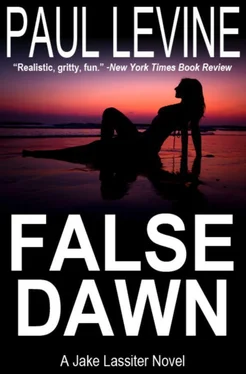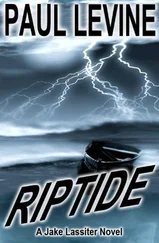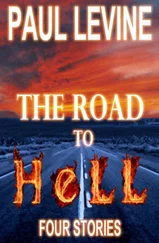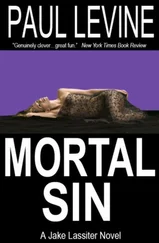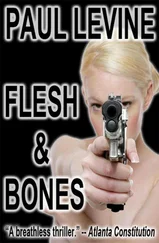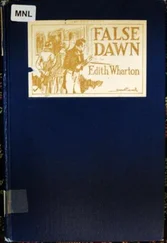Paul Levine - False Dawn
Здесь есть возможность читать онлайн «Paul Levine - False Dawn» весь текст электронной книги совершенно бесплатно (целиком полную версию без сокращений). В некоторых случаях можно слушать аудио, скачать через торрент в формате fb2 и присутствует краткое содержание. Жанр: Криминальный детектив, на английском языке. Описание произведения, (предисловие) а так же отзывы посетителей доступны на портале библиотеки ЛибКат.
- Название:False Dawn
- Автор:
- Жанр:
- Год:неизвестен
- ISBN:нет данных
- Рейтинг книги:3 / 5. Голосов: 1
-
Избранное:Добавить в избранное
- Отзывы:
-
Ваша оценка:
- 60
- 1
- 2
- 3
- 4
- 5
False Dawn: краткое содержание, описание и аннотация
Предлагаем к чтению аннотацию, описание, краткое содержание или предисловие (зависит от того, что написал сам автор книги «False Dawn»). Если вы не нашли необходимую информацию о книге — напишите в комментариях, мы постараемся отыскать её.
False Dawn — читать онлайн бесплатно полную книгу (весь текст) целиком
Ниже представлен текст книги, разбитый по страницам. Система сохранения места последней прочитанной страницы, позволяет с удобством читать онлайн бесплатно книгу «False Dawn», без необходимости каждый раз заново искать на чём Вы остановились. Поставьте закладку, и сможете в любой момент перейти на страницу, на которой закончили чтение.
Интервал:
Закладка:
“Two hundred million,” I said, figuring that was the answer to the question: Just how much money does one man need?
I t has been agreed by the bureaucrats,” Severo Soto told me, his voice dripping with disgust. “Your government will give Foley his money and the Russians their art.”
Funny how he always called it my government, always distanced himself. From the beginning, he had planned to return to his homeland, had never become an American citizen.
“Everyone should be happy,” I said. “In a roundabout way, the plan succeeded. The thefts have been stopped, the reformers saved from embarrassment.”
We stood on a street corner in Old Havana near the ornate Grand Theater. Soto was leery of talking business in the hotel room. Hundreds of men and women on Chinese bicycles streamed past, headed for work. A skinny teenage boy in torn sneakers approached us, offering to exchange pesos for American dollars at triple the exchange rate. I picked up a few one-peso notes as souvenirs and studied one of them. Beneath the inscription, Entrcida a la Habana 8 de Enero de 1959, Fidel Castro rode triumphantly atop a tank, surrounded by his soldiers. One of Fidel’s compatriots, a bearded warrior, held a (lag and wore crisscrossing bandoliers. To me, he looked like a young Severo Soto.
I said, “I thought the money might have been a problem.”
“They would have paid even more. Money is unlimited to bury mistakes.”
“Cheer up. Mission accomplished. Castro won’t get his hands on the billion dollars that could save his economy. You can wait for him to fall.”
Soto pulled a cigar from his guayabera pocket. A Partagas corona. I had watched him buy a handful in the hotel lobby. Most exilado s refuse to smoke them until Fidel is toppled.
“I have been waiting more than thirty years. How long can a man wait?”
For a moment, I thought he was reading my mind. But he was talking about Castro, not the cigars.
Soto said, “Returning the art, restoring the status quo, does nothing to aid the just cause of the Cuban people. “
I remembered what Foley told me at the ballet. Soto was the one who wanted to drive the nail into the coffin of communism. “Hey, be happy with a wash. It’s better than Castro getting all that loot.”
We walked past the Floridita Restaurant where, Miami Cubans say, a bartender first mixed rum with lime juice and sugar. The sign above the entrance read, La Curia del Daiquiri. We passed old stucco apartment buildings pockmarked with age and neglect. We crossed a street of wooden bricks that had to be three centuries old. A jacaranda tree blooming with purple flowers gave us an umbrella of shade at a street corner. Best I could tell, no drug dealers lurked under the branches. From a courtyard not fifty yards off a main street, a bare-chested man was pulling a bucket of water from an underground cistern.
An open truck stopped in front of one of the restaurants that cater to hard-currency tourists. Skinned pigs gleamed yellow in the sun; hundreds of flies buzzed over the carcasses.
“The people have no meat, but La Bodeguita del Medio can feed the turistas all the pork they want.” Soto puffed on his cigar and blew aromatic white fumes in my direction. “Do you care for lunch?”
I wasn’t feeling hungry just then.
We had walked several more blocks when Soto said, “It is a crime to return the art.”
Funny, I thought it was a crime to take it.
“Do you know what we could do with the proceeds from just a fraction of the paintings and gemstones?” Soto asked.
“You could give this city a coat of paint.”
“I could equip an army, or I could feed the island for a year. I could build factories and roads and hospitals. Or I could make a revolutionary statement the world would never forget.”
Now what did that mean?
The old dreamer. An errand boy, his daughter called him. Burned out, Foley said. But Soto wasn’t reminiscing about past glories. He was looking to the future, and again he was carrying a gun. When he closed his eyes, he must have seen sugar cane workers abandoning the fields and streaming into the mountains, lean men in fatigues cleaning their weapons in a tropical downpour. He heard rifle bolts clicking into place, smelled cordite and gun oil, felt the tingle of quickened heartbeats.
“Do you have a sense of irony?” Soto asked. He tossed his cigar into the street. “The art was the product of corruption. The Russian peasants starved so that the Romanovs could have diamond eggs. Is it not ironic that the handiwork of such evil could now be used for the benefit of the people?”
“But it won’t be used at all. It’s going back to the museums. No more art for wheat. No more sting operations. Socolow got the word, remember. The U.S. doesn’t want to interfere in the internal affairs of a sovereign nation.”
Soto barked a humorless laugh. “ Si, just as your government didn’t want to interfere in Guatemala in ’54, but that didn’t stop the CIA from overthrowing Jacobo Arbenz. Just as you didn’t want to interfere in Panama in ’64, but U.S. troops still killed a score of protesters, to say nothing of the illegal invasion of that sovereign country in 1989 in order to kidnap General Noriega. How far does American respect for sovereignty extend? Not to Libya, Cuba, or Iraq. I am sure Sukarno of Indonesia and Nkrumah of Ghana would have been surprised to learn that the U.S. doesn’t interfere in their internal affairs. What would Allende say if he were alive to say it?”
Nobody ever called me a knee-jerk patriot, but all this America bashing was getting on my nerves. I was also beginning to wonder if coming back to Cuba had jarred a screw loose in the old man’s head. “I’m no expert on world affairs, but you’re leaving out a lot of the good. My government also gave you a job and a home and the freedom to say what you want. Frankly, I’m worried about your priorities down here.”
Soto looked away, pretending to admire an old church. “I have said too much. Do not fear. I am a good soldier.”
I knew that. I just didn’t know in whose army.
25
We were on Agramonte Street nearing the Maximo Gomez monument when the driver stopped and pointed to his left. Severo Soto nodded, rolled down his window, and spat in the direction of a baroque palace of arches and columns. “The antiguo palacio Presidencial, decorated by Tiffany, occupied by the pig Batista. How unfortunate he did not die there rather than in his bed in Spain. Now, it’s the Museo de la Revolucion.”
The driver headed out of Old Havana on the Malecon just as the sun was setting. Behind us, the city was bathed in a pink glow, softening the focus, concealing the decay. We were on Fifth Avenue, the broad tree-lined boulevard of foreign embassies, when Severo Soto spoke to the driver in Spanish, and we took a sharp left turn in front of the Presidente Hotel.
The setting sun was at our back. My sense of direction told me we were headed away from the ocean. “The marina is to the west,” I said, “and we’re headed east.”
“There is something I want to see before we do our business,” Soto replied.
I had left Foley sitting at his table at the Tropicana roughly twenty hours earlier. Soto spent the day at the U.S. Interests Section, fiddling with a satellite up-link telephone, speaking in coded English to his superiors at Langley. He conveyed my messages and gave me theirs as we worked on details of the agreement. I already had prepared the first draft of the paperwork. An assistant attorney general made some revisions, then I made some more. Soto sent and received the documents by fax. Later we would meet with Foley, review the papers, dot the i’s and cross the t’s. Just another day of lawyering, but somehow it didn’t feel the same as settling a slip-and-fall at the Porky Pig market.
Читать дальшеИнтервал:
Закладка:
Похожие книги на «False Dawn»
Представляем Вашему вниманию похожие книги на «False Dawn» списком для выбора. Мы отобрали схожую по названию и смыслу литературу в надежде предоставить читателям больше вариантов отыскать новые, интересные, ещё непрочитанные произведения.
Обсуждение, отзывы о книге «False Dawn» и просто собственные мнения читателей. Оставьте ваши комментарии, напишите, что Вы думаете о произведении, его смысле или главных героях. Укажите что конкретно понравилось, а что нет, и почему Вы так считаете.
